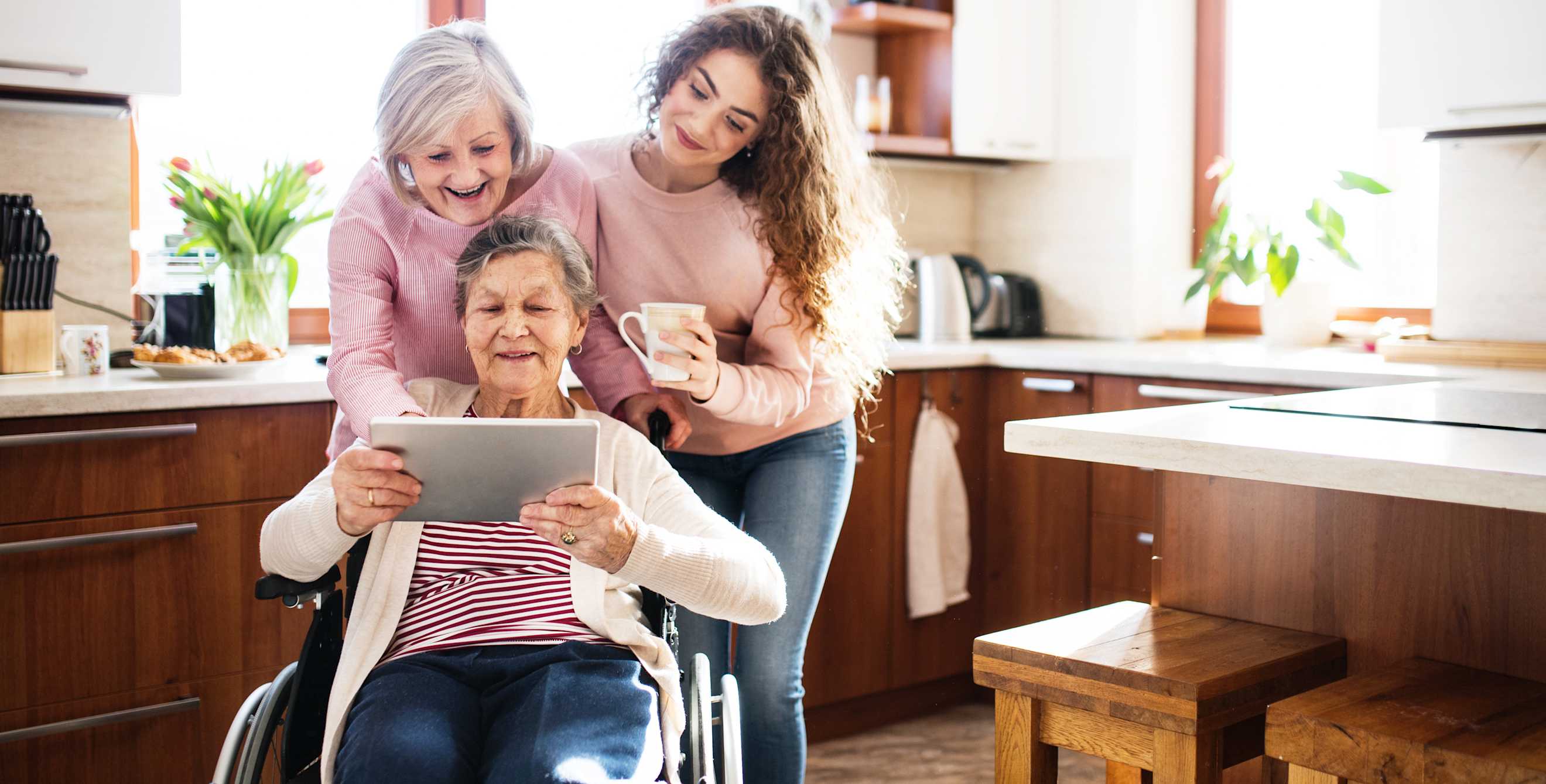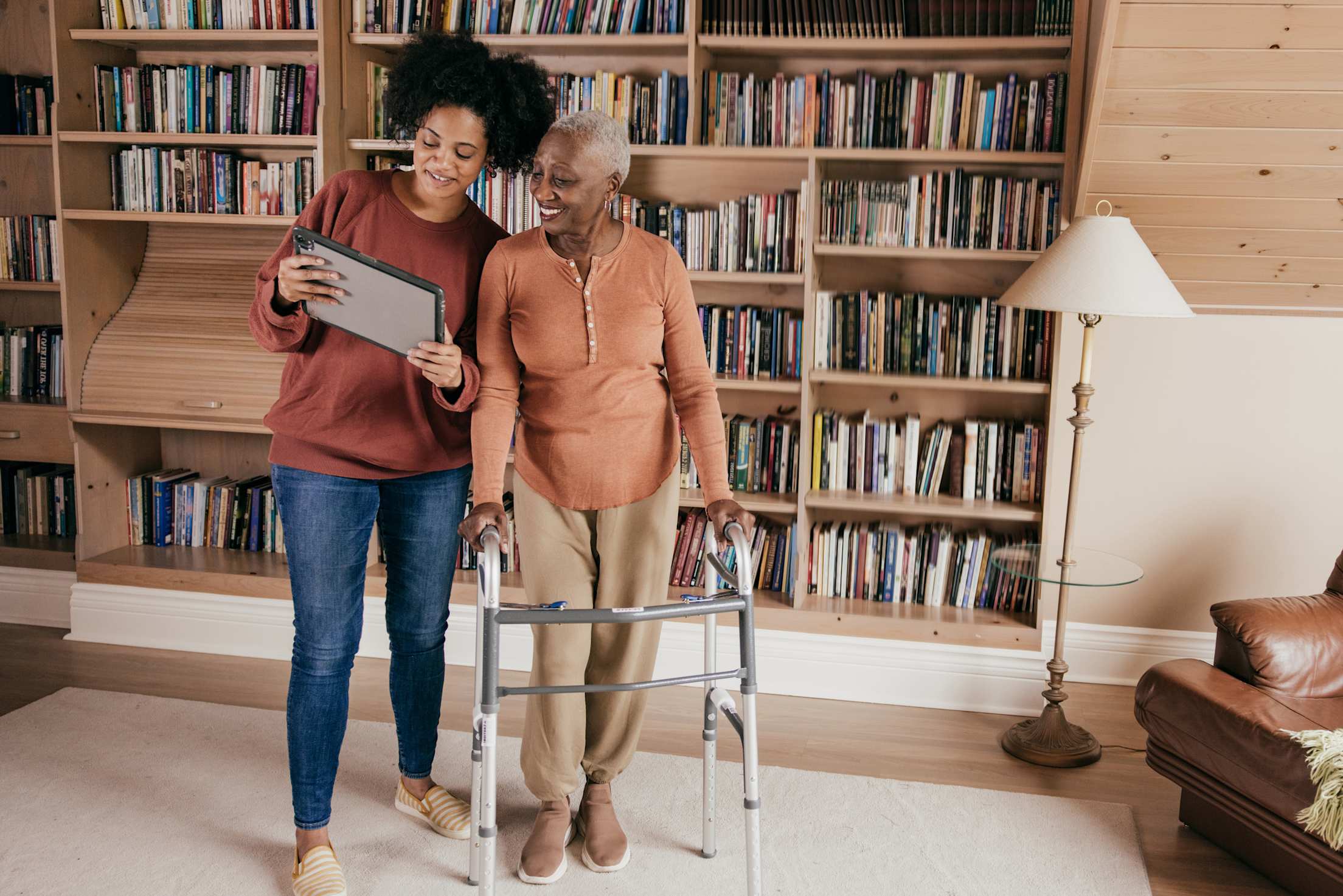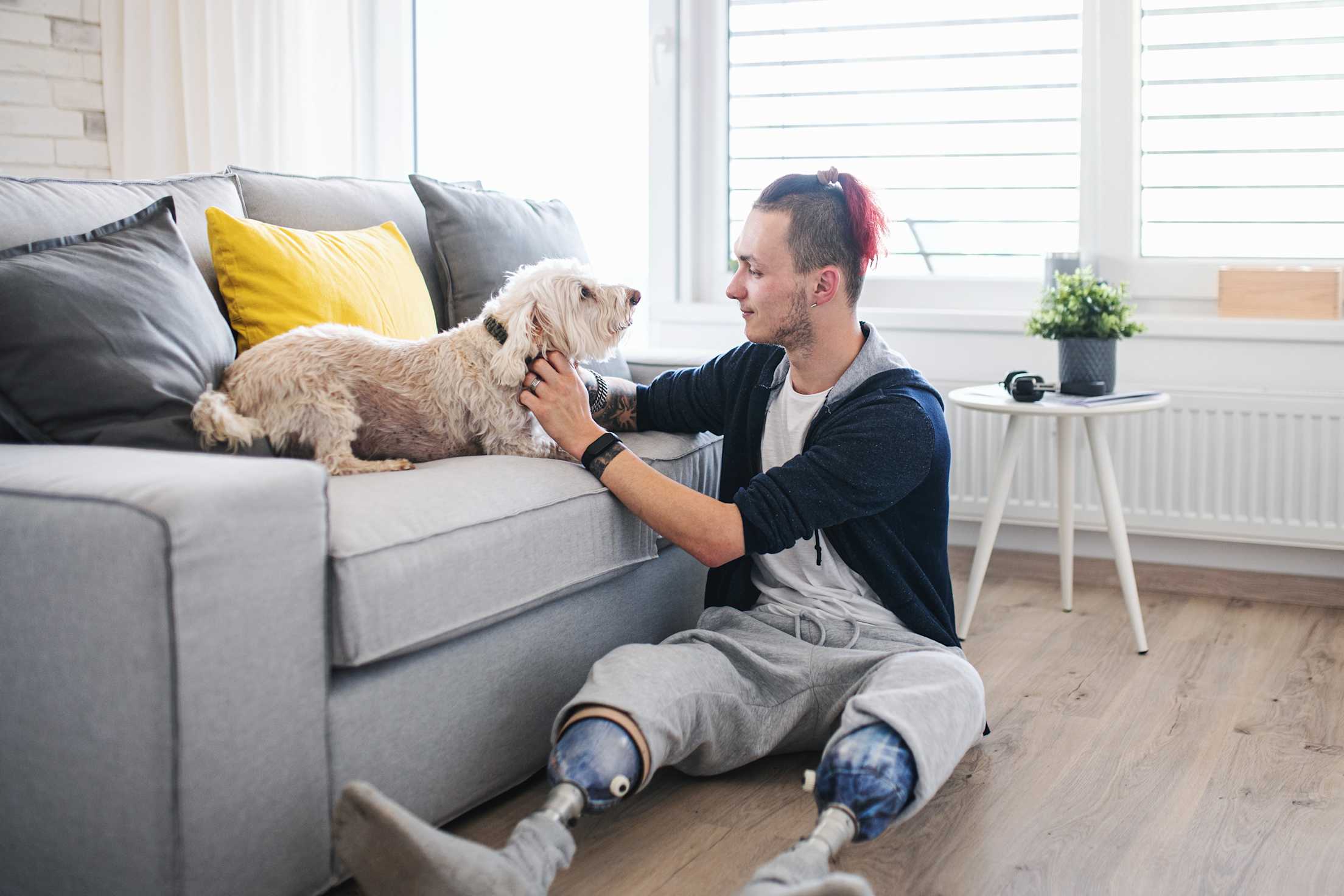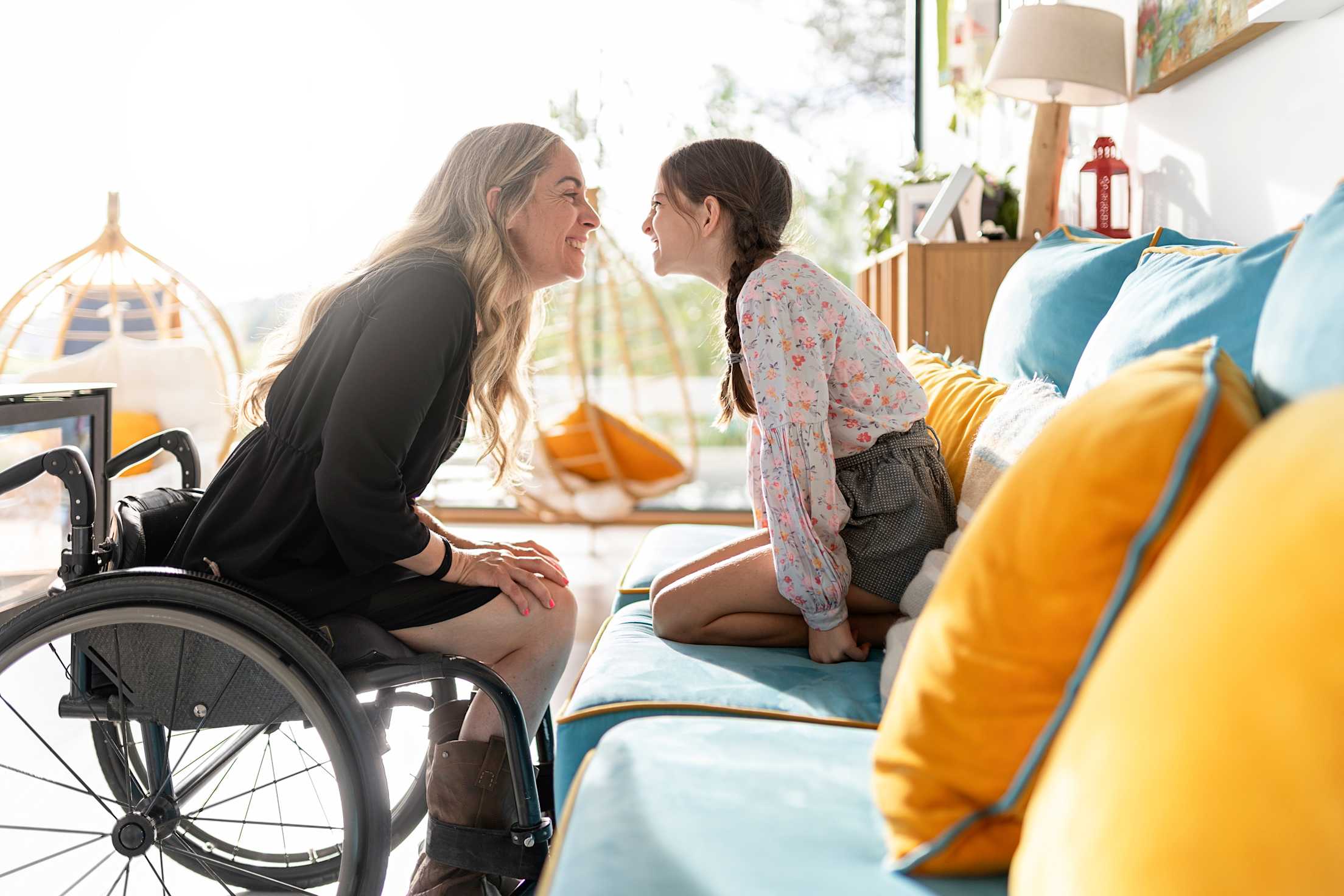
Simple Steps to Make Your Home More Welcoming to Disabled Guests
Minor adjustments can improve your home’s accessibility and comfort for visitors.

A good host makes guests feel comfortable and cared for: That’s why you tidy up, get a variety of snacks and beverages, and set out fresh towels in the bathroom. The same philosophy holds true if your guest lives with a disability, which is the case for one in four Americans.
It’s unrealistic that you’ll widen doorways or install a ramp for a visitor, but there are many small-scale adjustments (think: putting away that pile of shoes sprawled around your entryway) and tweaks to your normal hosting routine that can make your space more welcoming and accessible for your guests. Here’s where to start.
Check in.
“My number one tip when hosting disabled guests is to speak with them beforehand to understand their individual needs, as these can vary greatly even between people with the same diagnosis,” says Renee Moody, founder and chief accessibility officer of Boundless Creative Expeditions, which provides business services for chronically ill, disabled, and neurodivergent entrepreneurs.
This is preferable to making assumptions, which can be off-base or insulting. “The best thing to do with any guest, but especially a disabled one, is to not assume and [instead] ask,” says YouTube creator Molly Burke. Some requests may be unexpected or hard to predict. For example, Burke, who is blind, prefers a stemless wine glass or even a juice glass over a stemmed glass to avoid accidental spills.
In the days leading up to your guest’s arrival, send a quick text to inquire about preferences or anything you can keep in mind. Think of this as an extension to questions about allergies or dietary preferences.

Look for obstacles.
Walk through your home before guests arrive, looking for potential pitfalls, such as unanchored area rugs, piles of bags in the front hallway, and so on.
“A very cluttered space is tricky for us to navigate,” Burke says. Make sure to tidy up, and move fragile items out of the way. “If there's something you don't want to break, put it away,” Burke says. This advice comes from experience: She was once over at a friend’s home and bumped into a table that displayed their china. “It would have been very easy for one of those things to fall and break,” she says, and then she would have felt terrible about the accident.
Give a tour.
It’s common to show guests around your space, pointing out the features you love as well as things guests need to know, such as the location of the restroom and where to find the hand towel. “Bringing me on a tour” is helpful, Burke says.
For some guests, it may provide an opportunity to spot potential issues or make requests, such as asking for the nightlight to be turned on or if a chair can be moved aside slightly.

Don’t hover.
“The thing that always bothers me is when people are too close to me or grabbing at me,” says disability advocate and writer Imani Barbarin, who has cerebral palsy. “If you're too close to me, I can't walk because I can't use my crutches and actually ambulate them in a way that helps me move.”
Don’t hover physically—and don’t fuss verbally, either. “Offer help without being pushy,” Moody advises. Let people voice their preferences and needs. And always ask before touching a wheelchair, crutches, or cane. “That device is an extension of their body and should be treated as such,” Moody says.
Adjust your house rules and habits.
Some of your household rules may not work for guests. For instance, a lot of homes have a shoes-off policy, but Barbarin notes she can’t follow that rule.
Some of your guests’ requests or habits may be unfamiliar or unexpected. Respond with respect, as well as patience, and assume that nothing is personal. For instance, a visitor might not be comfortable with physical or eye contact. “Allow them to opt-out of hugs and handshakes without drawing attention to it,” Moody says.
Make small changes.
Nearly everyone has small quirks in their home that they’ve gotten used to over time. Maybe there’s a floorboard that sticks up, or the hot and cold water are reversed in the shower. Having company is a good excuse to fix some of these issues (or note them so you can point them out to visitors).
And while major renovations aren’t expected, some minor tweaks can make a big difference. Here are a few examples:
- Add lightswitch extenders. These allow someone in a wheelchair to reach the switch and turn lights on and off.
- Tack down rugs. If you don’t plan to remove them, anchor area rugs with a rug pad, velcro strips, or tape.
- Switch out knobs. Replace rounded door knobs with levers or other options that do not require grip strength.
- Purchase a shower stool. You may even have something suitable in your home already.
- Add grab bars. While removable suction cup and adhesive grab bars are available, they aren’t a reliable option. Installing secure grab bars only requires a drill and the ability to find studs. Small changes like adding grab bars aren't just for guest's benefit. “Accessibility is for everybody," Barbarin says. A fall in the bathroom, which is full of hard, slippery surfaces, is dangerous for anyone, and your whole family may benefit from this tweak. Many grab bars come in modern finishes and may also have other useful features, such as space to hold towels or toilet paper.

Adjust for the five senses.
Sensory processing disorder is often overlooked, Moody says. You may want to dim the lights, reduce noise from the TV or radio, or skip perfume, she says.
Depending on your guest, turning captions on the TV, plugging in night lights, raising (or lowering) the heat, and other small adjustments may help with comfort and safety. Good lighting is important to Burke, who has light and shadow perception. “Lighting gives me a lot of feedback,” Burke says.
Ask your guest about their preferences and needs for the environment and any activities you may have planned, such as sharing a meal. Guests may have food restrictions and serving preferences, Moody says. “For instance, some people prefer to use plastic silverware and may even bring their own out of habit,” she says.
Don’t worry about perfection.
No matter who you are hosting, it’s all too easy to get caught up worrying that your space isn’t good enough for your guest(s) or that you won’t gracefully handle any unexpected situations that might pop up. But no one expects perfection.
“I’d rather be invited to a house that gave ZERO thought into my needs than not get invited to places because people are scared it isn’t good enough or they’ll do something wrong,” Burke says. “At the end of the day, I want to be included, and I truly don’t expect other people’s homes to be perfectly accommodating of me.”